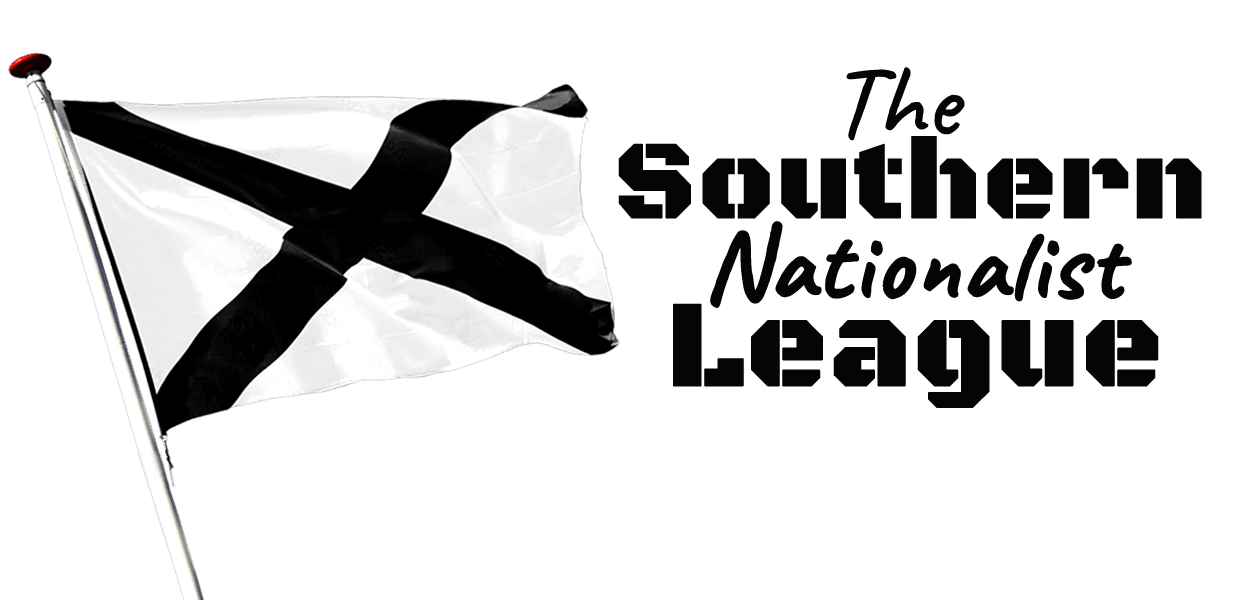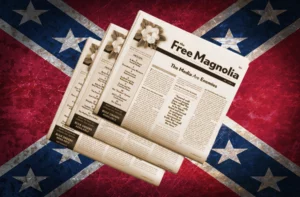Tuscaloosa, Alabama, 24 June 1994, 1:00 p.m.
“Everyone who favors forming an organization dedicated to Southern independence, line up against the wall to my left. Now, everyone who favors forming an organization to reform the current U.S. system line up against the wall to my right.”
I can remember saying these words like it was yesterday. We were in the non-descript conference room on the second floor of the Best Western Park Plaza. It was the mid-point of a three-day meeting to form what turned out to be The League. We had pretty much wasted the previous day, a Thursday, trying to “herd cats.” About forty people, mostly men but also a few women, had come from various distances at some expense and with hopes of getting something positive accomplished. By Friday morning, the 24th, I was positive that I had wasted forty people’s time, money, and energy. All we could do was squabble over details, most of them petty and meaningless. I felt terrible.
The three-day meeting, which we had tried to keep somewhat of a secret, was publicly billed by some as the “Secession Conference.” Indeed, that had provided for some pre-conference excitement, at least for me. I had good visions running about in my head. But now that we were bogged down in inconsequential meanderings, I was frustrated and angry. We were going nowhere and it was largely my fault. I had no experience running an organization and it showed . . . in spades.
At our dinner break at noon, Dr. Clyde Wilson handed me a folded piece of paper. He said nothing. Before we reconvened at one o’clock, I read his short message: “The Southern League . . . We seek to advance the cultural, social, economic, and political well being and independence of the Southern people by all honorable means.” I knew what I had to do to get things on track.
Of the forty people in the room, twenty-seven moved to the wall on my left while the remaining thirteen settled to my right. It was thus a 2-1 split in favor of Southern independence and a Southern Nationalist movement. Had it been reversed, then we would have begun The League with only thirteen people.
I had come into the meeting with the intent on forming a 365-day-a-year working organization that was focused on the South. I hoped that most of the attendees would agree. And most did!
At that point, I proposed the name and the Statement of Purpose, both of which were well received. Most all of the thirteen “U.S. reformers” to my right drifted away that afternoon and evening. On the following day, the remaining twenty-seven of us got down to business and officially approved our name and Statement of Purpose. We also appointed a President and Board of Directors. The League was born on 25 June 1994. And by God’s grace we are still around nearly three decades later: though battered and bruised, we continue to carry the proud banner of Southern independence.
So, why did we go with Southern Nationalism instead of American Nationalism? Those who wanted to reform the current system were really just conservatives with a Southern drawl. Most of us knew even then that this American System was too far gone to reform and that even if reformed that it did not represent the interests of the South and her people.
But there is another more fundamental reason. There is a Southern Nation. But there is no American Nation. That entity is a Proposition, a mere abstraction with no real cultural content.
You see, most people don’t know the proper definition of the word “nation.” It means “a people” (check out the Bible if you don’t believe me). It does not mean, as most use it today, a political system within certain borders. That is a “state,” not a “nation.” A nation may have a state but the two are not interchangeable. France and Germany are historic “nation-states;” the USA is not. In the case of Southerners, we are a stateless nation for all practical intents and purposes. We can trace our boundaries and we can claim State Sovereignty but that does not negate the overarching fact that we are occupied by the American Imperial Regime. But we are fully a nation still—a distinct people with common racial and/or ethnic characteristics (Anglo-Celtic, for instance), a unique history and culture, as well as a common language and a majority religion. And who are the Southern people—this Dixie nation—you may ask? We are the descendants of European, Christian peoples who settled the Southern region of North America in the 17th and 18th centuries.
We in The League stand for our people and their survival, well being, and independence on the lands settled by their forefathers. We put much stock in the ideas of kith and kin, blood and soil. We reject the labels “racist” and “hate group.”
When you consider that the USA is a failed leftist multicultural experiment, then you realize just how important our work is. If you think like we do, then we invite you to join us. And to help you determine that, I’ll close with some Question & Answer format memes:
Q. What is The League of the South?
A. An organization of Southern Nationalists
Q. What is Southern Nationalism”
A. A movement promoting the survival, well being, and independence of the Southern people
Q. Who are the Southern People?
A. The descendants of European, Christian peoples who settled the Southern region of North America
Q. What is a kith and kin nation?
A. A people bound together by blood and soil
Q. What do you mean by Anglo-Celtic?
A. The peoples of the British Isles
Q. Is the League of the South a Christian organization?
A. We are not the Church, but we do defend and promote Christian civilization.
Q. Is the League of the South a “racist” organization?
A. The term “racist” is an anti-White, anti-Southern slur.
Q. Is the League of the South a “hate group?”
A. We love our people and the South.
Michael Hill, Killen, Alabama, 4 October 2021


